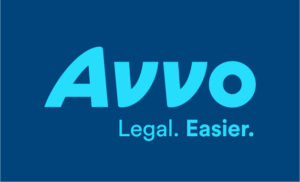** Purported Class of Lawyers Suing for Misappropriation of Image and Likeness Fails at First Hurdle **
By: Brent E. Johnson
 Bucking the popular notion that the legal system protects its own – a recent putative class action in Illinois bought by and for a class of lawyers – failed. Vrdolyak v. Avvo, Inc., No. 16 C 2833, 2016 WL 4765716, at *1 (N.D. Ill. Sept. 12, 2016). The defendant in the lawsuit, Avvo.com, publishes a directory that includes “profile pages” for millions of U.S. attorneys. Most lawyers, however, have never asked avvo.com to create profile pages for them – let alone had any input into them (or even know they exist) – rather the machine generated profiles are created using data gleaned from public records such as bar admissions and court records. The generated “profile page” contains identifying information and a rating calculated by an algorithm (which, rather crudely, primarily uses the number of years in practice as its measure). But some lawyers purchase from avvo.com special “sponsored listings” which promote their avvo.com profile above the unwashed mass. It appears that avvo.com’s business model relies on its critical mass of (involuntary) profiles and the ability to allow lawyers willing to pay a fee, to appear more prominently (i.e. what Google does!). Plaintiff John Vrdolyak (a University of Chicago law school graduate) cried foul. He claimed that his identity (and that of every other involuntarily avvo.com profiled lawyer) was misappropriated for commercial purposes without consent in violation of the Illinois Right of Publicity Act (“IRPA”), 765 ILCS 1075/1 et seq.
Bucking the popular notion that the legal system protects its own – a recent putative class action in Illinois bought by and for a class of lawyers – failed. Vrdolyak v. Avvo, Inc., No. 16 C 2833, 2016 WL 4765716, at *1 (N.D. Ill. Sept. 12, 2016). The defendant in the lawsuit, Avvo.com, publishes a directory that includes “profile pages” for millions of U.S. attorneys. Most lawyers, however, have never asked avvo.com to create profile pages for them – let alone had any input into them (or even know they exist) – rather the machine generated profiles are created using data gleaned from public records such as bar admissions and court records. The generated “profile page” contains identifying information and a rating calculated by an algorithm (which, rather crudely, primarily uses the number of years in practice as its measure). But some lawyers purchase from avvo.com special “sponsored listings” which promote their avvo.com profile above the unwashed mass. It appears that avvo.com’s business model relies on its critical mass of (involuntary) profiles and the ability to allow lawyers willing to pay a fee, to appear more prominently (i.e. what Google does!). Plaintiff John Vrdolyak (a University of Chicago law school graduate) cried foul. He claimed that his identity (and that of every other involuntarily avvo.com profiled lawyer) was misappropriated for commercial purposes without consent in violation of the Illinois Right of Publicity Act (“IRPA”), 765 ILCS 1075/1 et seq.
The Court sided with avvo.com – agreeing with its argument that the profile pages were speech that is fully protected by the First Amendment. The court reasoned that what avvo.com does is akin to a yellow pages directory, which receives First Amendment protection. Dex Media West, Inc. v. City of Seattle, 696 F.3d 952, 962 (9th Cir. 2012) (concluding that publications like yellow pages directories and newspapers receive full First Amendment protection because, as a threshold matter, they do not constitute commercial speech.) The Court also analogized the avvo.com profiles to those of a magazine, like Sports Illustrated, that publishes non-commercial information (i.e. articles about athletes) and sells and places advertisements within and around that information. The articles are fully protected non-commercial speech – the advertisements are (less protected) commercial speech. In this case the “Sponsored Listings” were the commercial speech – but they were authorized and not at issue. Those profiles that were at issue – the unauthorized profiles – were protected speech and their placement with the sponsored listing did not convert the entire website into commercial speech – the court opined. Gallingly, the court not only refused to side with the lawyers – but used the Constitution to do so.
